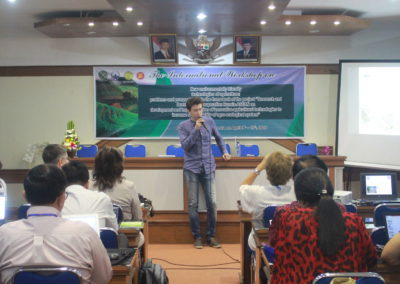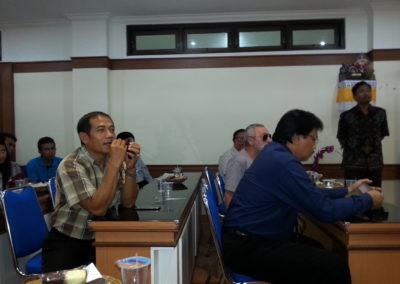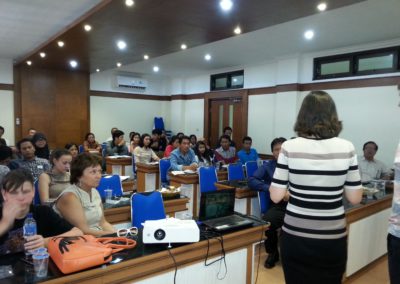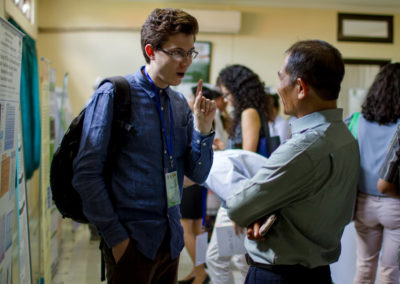Thematic seminars on molecular biology for Udayana University

Since 2015 Udayana University has been inviting Russian scientists for lecturing at least every six months. These meetings have been encouraged by the memorandum on cooperation between MSU and Udayana University as well as by the project «Research and Development Cooperation Russia-ASEAN on development and implementation of innovative agricultural technologies to increase sustainability of agro-ecological systems».
Both teachers and students of Udayana University were welcomed to participate.
Why is it crucial for a modern specialist in agriculture and wastewater treatment to be aware of these methods?
The point is that structure of microbial community in soil, sludge or water can be accurately determined by molecular biology methods. Note that all of the following processes are microbiological:
- providing crops with nutrients;
- protecting plant roots from parasites;
- removing hazardous toxic compounds from water;
- producing biogas (an important source of bio-energy).
Only accurate determination of microbial community structure can help to ‘decipher’ the process in situ (in soil or a treatment facility). This knowledge allows experts to understand what is happening in soil or a treatment facility and what process is taking place right NOW.
Day by day methods of molecular biology are becoming more available for farmers and technologists of treatment plants. Our lectures and seminars are leading up to the day when all practitioners will be able to apply these complex methods. That is the way to make agriculture safe (without pesticides and mineral fertilizers) and to treat water with ‘pieces of landscape’ (by Treatment Wetlands) where microbial communities are more effective compared to activated sludge systems.
The lecturers included not only well-known Russian scientists, but also Russian PhD students who have just started their academic career:
Anna Kudryavtseva – Head of Laboratory Center of Genomics, Engelhardt Institute of Molecular Biology RAS;
Georgе Krasnov – Leading Researcher, Engelhardt Institute of Molecular Biology RAS;
Mikhail Semenov – Senior Researcher, Dokuchaev Soil Science Institute;
Ksenia Rybka – PhD Student, Institute of Water Problems (RAS);
Sergey Kharitonov – PhD Student, Lomonosov Moscow State University.
Joint scientific research (i.e. project-oriented approach) is the most effective way in education.
Such kind of work has resulted in joint articles and meaningful recommendations for practicing farmers.
Sources:




